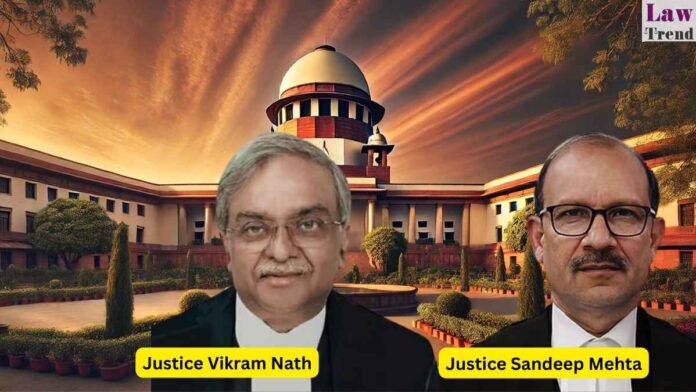The Supreme Court of India, in a significant ruling, has held that a conviction for dishonestly receiving stolen property under Section 411 of the Indian Penal Code (IPC) cannot be sustained once the accused has been acquitted of the primary charge of theft under Section 379 IPC. A bench of Justices Vikram Nath and Sandeep
To Read More Please Subscribe to VIP Membership for Unlimited Access to All the Articles, Download Available Copies of Judgments/Order, Acess to Central/State Bare Acts, Advertisement Free Content, Access to More than 4000 Legal Drafts( Readymade Editable Formats of Suits, Petitions, Writs, Legal Notices, Divorce Petitions, 138 Notices, Bail Applications etc.) in Hindi and English.




